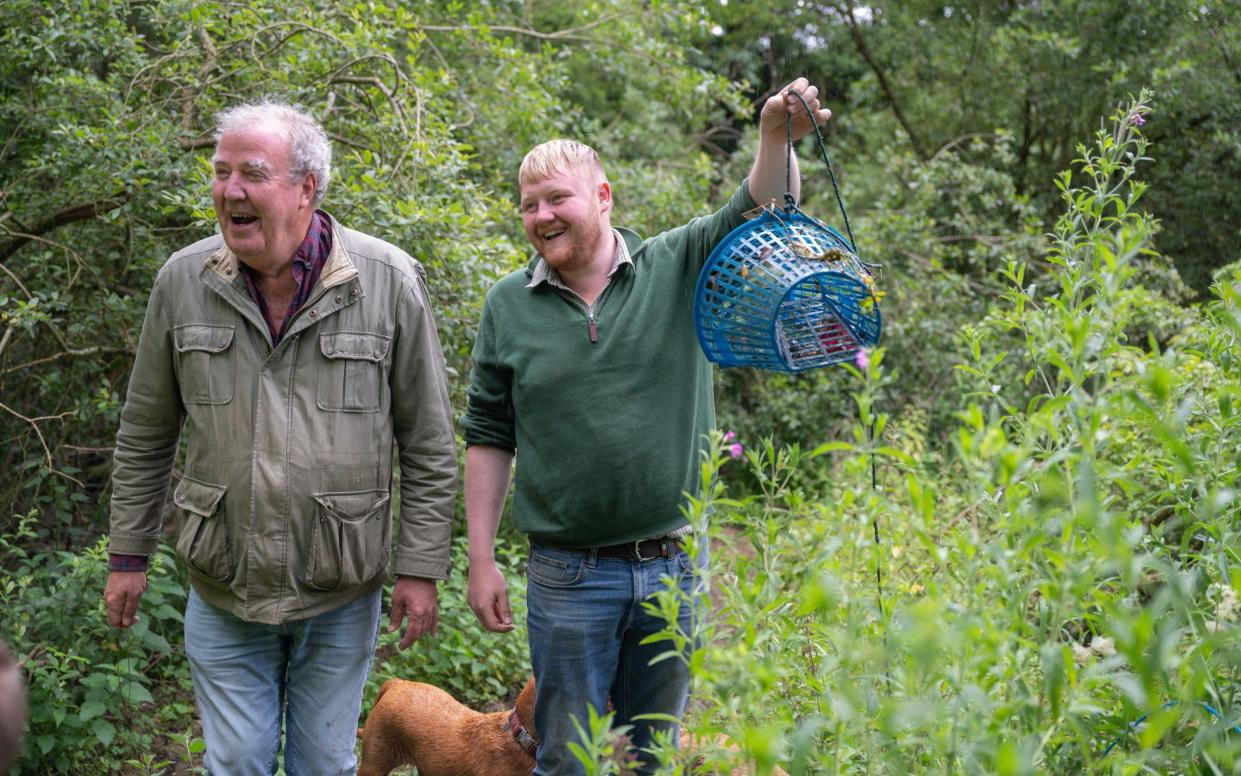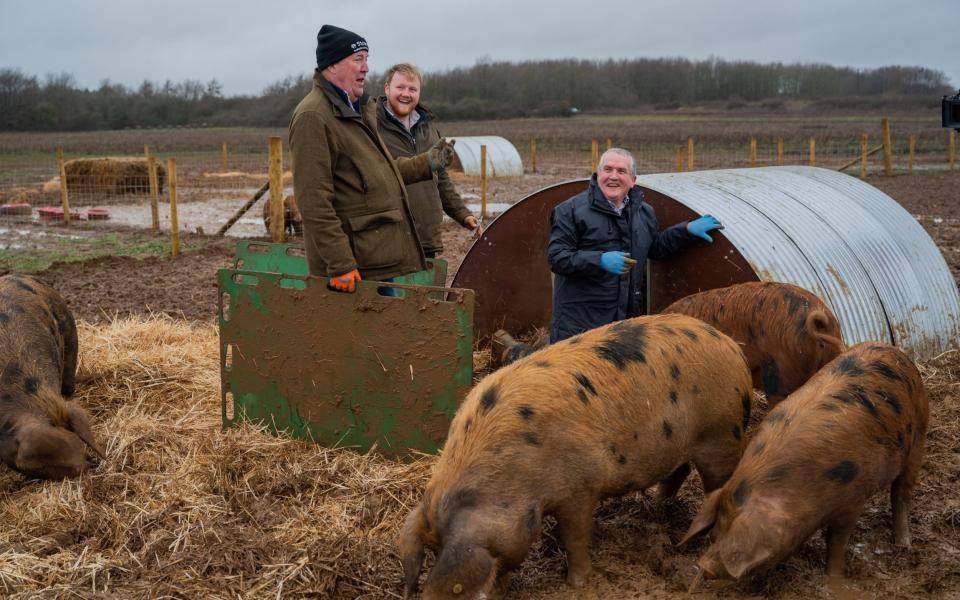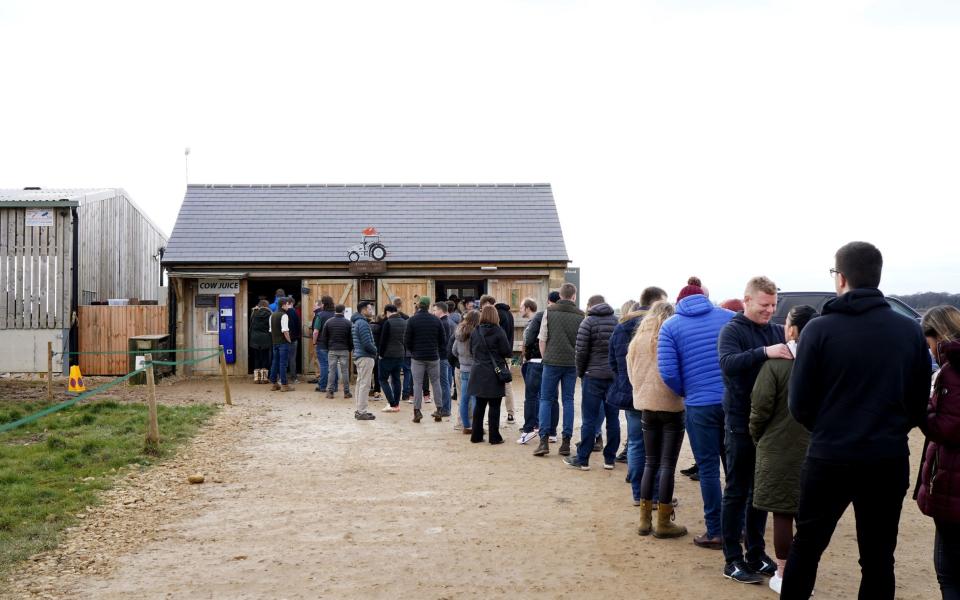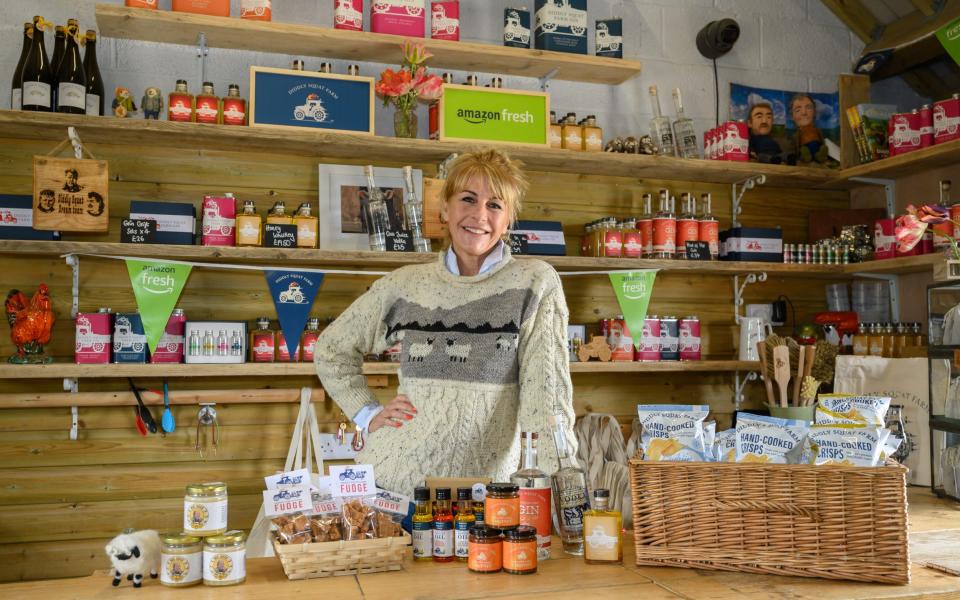A farmer’s view of Clarkson’s Farm: this is Cotswolds life, not rural life

- Oops!Something went wrong.Please try again later.
It has been a brutally unforgiving spring on British farms but morale has been bolstered by the screening of series three of Amazon Prime’s hit series Clarkson’s Farm. Squire Clarkson can be relied upon to tell farming life as it is with a raw honesty lacking on other channels.
His sonorous, piss-taking voiceover commentaries on the effects of the weather on his crops are refreshingly blunt and all the better for lacking prissy links to the climate change narrative that now seem obligatory elsewhere. Sometimes only Anglo-Saxon words of one syllable will provide the mot juste to convey the awfulness of agricultural situations and the series wears its rating of 15 for foul language unashamedly at the top of the screen.
The show is successful because of the endearing Toad of Toad Hall chutzpah of our hero. It is an instantly recognisable stereotype. There is a proud British landowning tradition of making your fortune then buying a farm and carrying on farming until all the money is gone, usually in a trail of botched diversifications and expensive gadgetry.
Clarkson challenges all the received wisdoms and goes out of his way to find rules to break. But we know that the bigger the scrapes he gets himself into the more publicity will be generated for his Diddly Squat brand and that he will have the last laugh.
And humour is something that is increasingly lacking in British rural life. Jezza’s satirical take on the humourless edicts of the “pig police” provide a welcome counter narrative to the endless stream of directives confronting farmers in this country, though not necessarily elsewhere.
That said, his cavalier attitude to health and safety is sometimes literally too close to the bone, as in the chainsaw that nearly takes his unprotected, denim-clad leg off. In our own sparsely populated parish in Dumfries and Galloway in two decades, we have had three deaths from cattle or machinery accidents and two life-changing injuries to farm workers, one from a chainsaw. Hopefully viewers will have hoisted in the fact that farming is a dangerous business and been more influenced by land agent Charlie Ireland’s well-justified bollocking than by Clarkson’s example.
Political incorrectness is what we like about Clarkson though. His previous decision to allow the local hunt on his land – following normal custom in the Cotswolds rather than the metropolitan dogma of the media bubble – led to his Hawkstone Brewery being besieged by animal rights terrorists.

In this series, his throwaway remark about the pheasants he releases on his farm will no doubt draw abuse from the Axis of Spite. A lesser man would have avoided talking about it on camera but Clarkson earns respect by being willing to stand up and be counted as a shooting man.
Yet to those of us in remote parts of Britain, Clarkson’s Farm is a portrayal of Cotswold life rather than rural life. The area around Chipping Norton where Clarkson farms probably now has more in common with Chelsea than with where I farm. No one around here would think of hiring out goats to local celebrities to rid their wildflower meadows of thistles.
If we were able to start a farm shop, there wouldn’t be many customers around here prepared to pay £40 for 30 servings of lion’s mane mushroom powder to go in their coffee. And we would struggle to find anyone to work in it. Since Brexit put a stop to Eastern Europeans coming, it has been almost impossible finding labour; our most recent recruit to milk our cows we had to bring all the way from the Philippines on a temporary worker’s visa.

But notwithstanding the slight envy many of us feel for Diddly Squat’s ability to add huge margins by selling direct, we have all been cheering Clarkson on in his battles with West Oxfordshire Council planning department. As politicians mouth platitudes about farmers needing to diversify and sell direct to consumers, while at the same time ruthlessly removing our subsidies and exposing us to free trade deals with less constrained countries, the need for deregulation to make it easier for small farming businesses to adapt and innovate couldn’t be clearer. Meanwhile, Clarkson’s farmshop is technically forbidden to stock a book that he has written himself, because it has not been printed locally. You couldn’t make it up.
The Cotswolds seem to have a love-hate relationship with Clarkson. On the one hand, estate agents are keen to highlight proximity to Clarkson’s farmshop in Country Life advertisements for eye-wateringly expensive properties nearby. On the other, the NIMBY tendency has opposed his farmshop. They should be grateful that he is determined to make a go of farming. Elsewhere in the Cotswolds, near Badminton and Blenheim, there are plans to smother the land in town-sized solar panel complexes that will change the character of the landscape completely.
The theme of this recent series has been “unfarming”, and we see Clarkson literally hoovering blackberries from the hedgerows in order to find anything anywhere on his partially wooded farm that will make money to avoid being reliant on the highly speculative roulette game that is arable farming. It’s a path that is familiar to many farmers and, though we know that Clarkson’s day job is still as a highly-paid broadcaster and newspaper columnist, we are happy to indulge his farming persona as we explore the uncertainties of diversification with him. The further off-piste you go, the deeper the snow drifts can be.

Just as the characters are vital to any drama, the critical success factor in any farming business is the people. And what a diamond Clarkson’s partner Lisa Hogan has turned out to be. Hands-on in the farm shop, she becomes hands-in as midwife to the piglets. It shines an important light on farming as family businesses where spouses are typically expected to share the long hours and provide uncosted labour to make ends meet.
Meanwhile Clarkson’s right hand man, 25 year old Kaleb Cooper has become such a celebrity in his own right that he gets an invitation to Downing Street to meet the Prime Minister. Clarkson’s decision to make him farm manager in this series, and give him the kind of autonomy that most young people could only dream about, is a brilliant advertisement for farming as a career choice.
It is frustrating that so many young people go to university to study environmental sciences in order to become agricultural bureaucrats while it is very difficult to recruit young people directly into farming itself. On my farm, we find it hard to understand why that is. An apprentice joining our dairy on the bottom rung of the ladder as a teenager could be earning £100,000 per year as a manager by the time he or she is 30, in a career that won’t be replaced by artificial intelligence. If Kaleb proves to be a role model who recruits more young people into farming the series will have had huge benefits.
As Jeremy Clarkson now realises, having been sucked into a farming life more than he ever thought he would be, for all its many challenges, it’s still the best job there is.
Jamie Blackett is a farmer and the author of Red Rag to a Bull and Land of Milk and Honey (Quiller)

